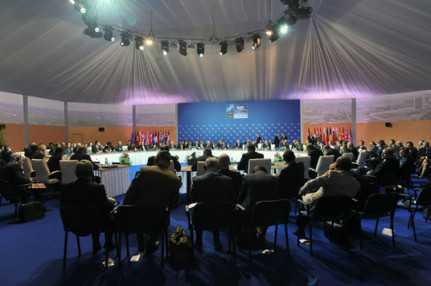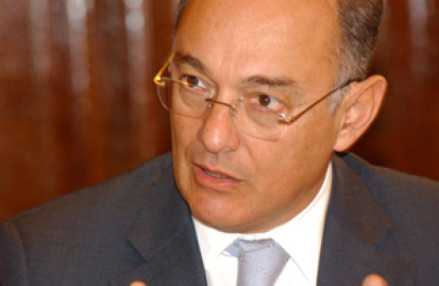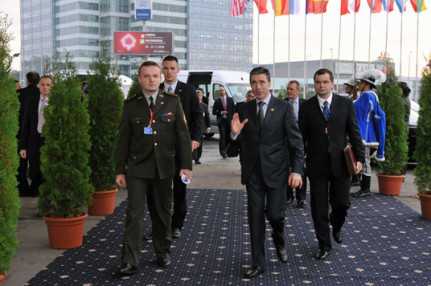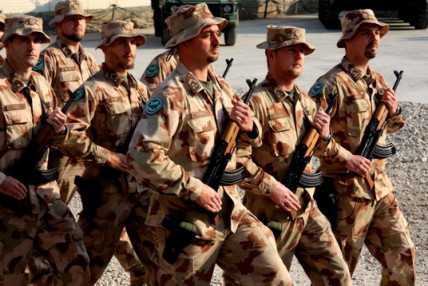The Focus Will Continue To Be On Afghanistan
Szöveg: honvedelem.hu | 2009. október 29. 6:31Afghanistan was the main topic of the NATO defence ministerial meeting held last week in Bratislava, but in addition to that, other current issues were also discussed. Defence Minister Dr. Imre Szekeres talked about the outcome of the meeting in his interview given to honvedelem.hu.
The solution of the situation in Afghanistan will continue to be the number one task of the NATO – said NATO Secretary General Anders Fogh Rasmussen in Bratislava at the two-day meeting of the defence ministers of the organization, held on 22-23 October. Hungary’s long term commitment to consolidation will continue to be unchanged – it was already declared by Dr. Imre Szekeres at the conference. We asked the defence minister about the future of our involvement in Afghanistan, and other key topics discussed at the meeting.
In Bratislava the secretary general of NATO urged the member states of the Alliance to play a more active role in Afghanistan. You on the other hand believe that instead of increasing the number of personnel – as it has been requested in the report of General Stanley McChrystal, the commander of the American and allied forces in Afghanistan –, the key to the solution of the situation is increasing efficiency. What kind of options are there for increasing efficiency?
One of the most important tasks of the international community, and within that, the NATO, is to contribute to the creation of a politically and economically functioning, self-supporting Afghanistan. As regards General McChrystal’s proposal to increase the number of personnel – which has been discussed now in Bratislava as one of the key points on the agenda – I have to say that compared to our power, we already participate in the Afghanistan operation with a large proportion of our troops. Let me remind the readers that in terms of international commitments, our country is at the third place, based on the ratio of troops participating in operations compared to the total number of personnel in the military. There are only two countries that precede us, both of whom are considered great military powers: the USA and Great Britain. In my opinion, the issue of more active participation that was mentioned by the secretary general of the organization is not in contradiction to what I have suggested, namely that beyond a mere increase in the number of personnel, we should put the emphasis on increasing the efficiency of the operation. What it means specifically is the improvement of capabilities, and the prioritisation of respective tasks.

In your opinion, what is the most important task now in Afghanistan?
I claim that the Afghan government and the Afghan people can do the most for the consolidation of their own country, and the duty of the international community is to assist these efforts in the most efficient way. Consequently, I believe the most important tasks are the ones that can lead the country to the road of self-support as soon as possible: such as the training of efficiently operating Afghan security forces, for instance. Therefore a commitment of decisive significance in the near future will be the NATO Training Mission (NTM-A), specifically aimed at the training of the Afghan National Army and the police, in which Hungarian soldiers will also play a role. The other prerequisite to the creation of an Afghan state that is capable of operating alone is that developments attain their goals. There is still a lot to do here in order that each euro and dollar can produce real, tangible results.
You have mentioned the improvement of capabilities and our participation in the NATO Training Mission as a new contribution. What kind of new capabilities and further contributions can Hungary provide for the consolidation of the situation in Afghanistan?


Once you have mentioned multinational cooperation, let us move on to the other key topic of the meeting, the financing questions of the Alliance! It is well known that you have been urging for long the extension of the multinational model to as many programs as possible because in many cases it seems efficient, which is already underpinned by positive examples. Has there been an advancement in the solution of the financing problems of the NATO – either by extending multinational and jointly financed programs?
The discussion of financing questions could not be more timely. The crisis we are facing is not momentary but lengthy, which, of course, also has an effect on the NATO and its financial management, therefore this topic cannot be evaded. I believe it is a strategic issue how the Alliance will respond to this challenge. At the same time it must not be concealed either, that regardless of the crisis, there are problems in the financing routine of the organization. In order to promote a solution, together with my Italian and German minister colleagues we have submitted our proposal in a thought-provoking document. In this we have pointed out that in the current situation no extra resources can be expected from the respective nations, which have already tightened their budget. The existing resources have to be utilized better, to which it is essential to reconsider the priorities. It is important that the re-scheduling or even the deletion of certain programs cannot be a taboo. The focus must be on enhancing the deployability of the military forces of the member states and their capability to participate in operations. This reconsideration, however, is not a simple task and it also requires political decisions. Therefore Secretary General Rasmussen – in response to the proposal – has announced the setting up of a team comprising senior NATO officials, that would examine which are those capabilities, forces that are absolutely necessary for the Alliance, and which are those that are less important. In addition to emphasizing the importance of identifying the priority tasks, I have stressed once again the significance of finding the balance between national, multinational, and joint financing. As you have already referred to it in your question, I still believe that the better utilization of multinational financing could make us more efficient and productive in many cases. However, achieving cost efficiency this way is also dependent on a political will – in other words, the decision is in our hands in this case as well. This is why I have made efforts at the meeting to call the attention of my counterparts to this topic once again.

The new American missile defence concept was also on the agenda of the meeting. What is the position of Hungary on the modified plans?
We support the new – modified – American plans, since it is also in our interest to have a ’protective screen’ above Europe, which can provide proper protection against the threat of ballistic missiles. Nevertheless, I personally would advocate diplomatic efforts in suppressing threats.
How successful do you think the two-day session was, all things considered?
I believe we have lived up to the expectations. In several points – such as the signing of the helicopter agreement, or the discussion of the proposals for solving financing issues – there has been advancement, but it is undeniable that for the next meeting we have also left a lot of open questions that need further consultation. I am sure that Afghanistan, for example, will remain in the focus of thinking of the Alliance for quite a while.